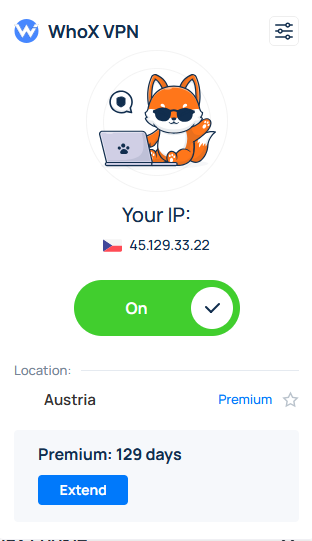A web proxy is a website that allows you to open other sites through its domain. Web proxies have certain limitations, so it’s often more effective to use a VPN instead. Choosing between a VPN and a proxy depends on your privacy and performance needs. This article will help you understand the differences and make an informed choice.
Best VPN – safe and private! Get 10% Off with Code WELCOME
All web proxies work similarly: you enter the URL you want to visit into a special field, and the proxy website loads it for you. For instance, to visit google.com privately, open a proxy site, type the address, and click “Go.”
Why people use web proxies
- The visited website receives the proxy’s IP address instead of your real IP address, which helps maintain some privacy while browsing.
- Many web proxies are free to use.
- A variety of proxy services are available across different domains, offering various speed levels, advertising policies, and reliability.
Limitations of web proxies
Users often notice performance and privacy issues when using free web proxies:
- Proxy connections tend to be slower: average ping is around 250 ms, while VPNs typically provide lower latency.
- Some web proxies display advertisements both on their own pages and within the target website.
- Proxy service operators are often anonymous, so users cannot verify how their data is handled.
- Proxy availability and connection stability may vary, as these services can appear or disappear without notice.
- Data transfer may be limited (for example, file size restrictions), making large downloads or video streaming less efficient.
- Web proxies generally do not provide encryption.
- Users usually cannot choose the proxy’s IP address or location.
- Certain web proxies may be unavailable in specific regions.
Comparing VPNs and proxies
A VPN encrypts your connection, which proxy servers typically do not. VPNs protect your data from third-party access and increase security on public Wi-Fi. Proxies, on the other hand, are designed for basic web access rather than secure data transfer.
Quality VPNs usually operate on a paid model, but many offer free trial periods for testing.
| Feature | VPN | Web Proxy |
|---|---|---|
| Encryption | Yes | No |
| Speed | Generally faster | Often slower |
| Ads | Usually ad-free | May include ads |
| Stability | High | Variable |
| IP selection | Multiple countries | Limited |
| Data logging | No-logs options available | Unclear |
| Data protection | Secure for sensitive use | Not recommended |
Browser extension option
Some browser extensions can act like lightweight proxies. For example, the WhoX extension for Firefox helps route traffic through different servers while providing simple location switching and improved privacy. Such tools can also complement VPN protection for additional data security.

Using VPN and proxy together
To strengthen privacy protection, you can use a VPN and a proxy together:
- Connect to a VPN to encrypt your traffic.
- Use a web proxy or WhoX browser extension to route requests through a secondary IP.
- Continue browsing normally — the VPN provides encryption, while the proxy adds another privacy layer.
This combination helps improve anonymity and provides access through different IP addresses while maintaining encryption and secure data handling.
Conclusion
Using a VPN is generally a more reliable option than web proxies for maintaining speed, security, and privacy. In the VPN vs. proxy comparison, a VPN provides broader functionality and stronger protection. The WhoX VPN combines stability, fast performance, encryption, and multiple IP options, offering a balanced and secure browsing experience. Using VPN and proxy together can also enhance flexibility and control over your online privacy.
Disclaimer
VPN and proxy technologies are designed to enhance online privacy, data protection, and connection security. Their use should always comply with applicable laws and the terms of service of the platforms you access. This article provides general informational content and does not promote or encourage any form of policy circumvention or misuse of these technologies.